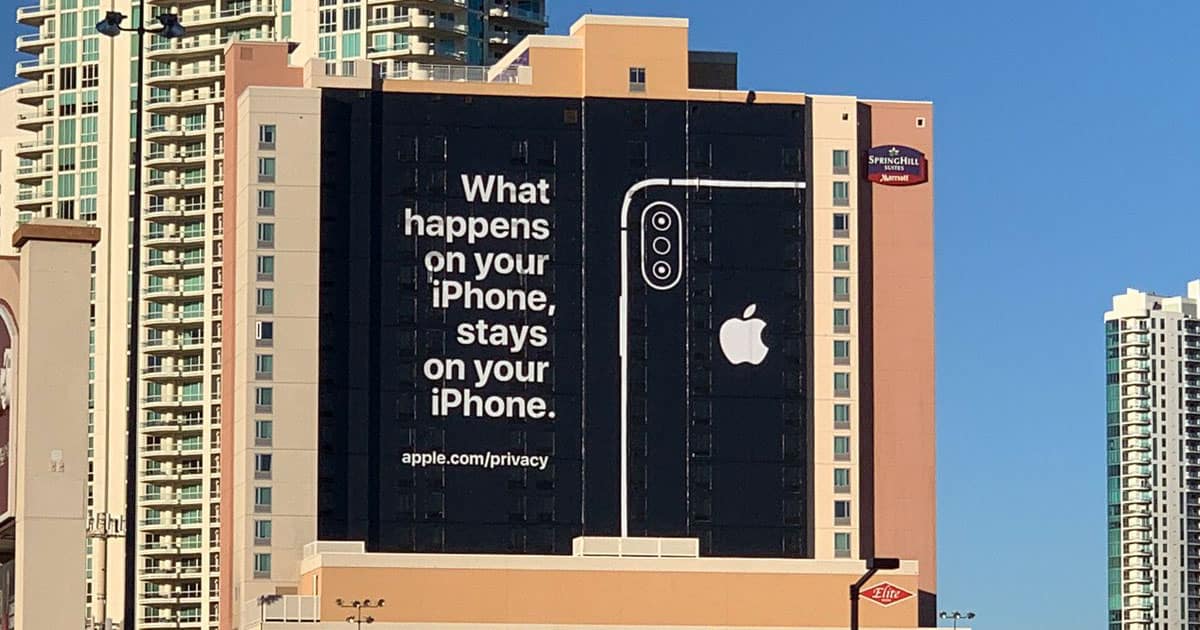Some folks with Catalina on the brain want to know how to prepare. Some folks want to prepare to reinstall Mojave. Joe has advice for future-proofing your home, and the A-Lady wants you to whisper sweet nothings at her. It’s that kind of week here and John and Dave are your stalwart guides. Press play and enjoy learning at least five new things!
Amazon
Apple Card vs. All the Cards and What Is Apple Becoming, with Jeff Gamet - ACM 514
Apple Card is coming soon, and Bryan Chaffin and guest-cohost Jeff Gamet compare it to the Amazon Prime card and other credit cards. They also dive into the heady topic of what exactly Apple is in the process of coming. Spoiler, Jeff guesses wrong when he says “a services company.”
Apple Music for Alexa Comes to Australia
A recently updated Apple support page shows that Apple Music for Alexa is now available for Australian customers.
Amazon Launches New Counter Pick up Service
Amazon launched Counter, through which Prime members in Italy and the UK can have applicable items delivered to partner outlets.
Alexa Keeps Text Trancripts of Deleted Recordings
Users can delete voice recordings stored by Alexa. However, Amazon still keeps the text transcript, CNet reported, raising a host of privacy concerns.
When you check your Alexa dialogue history, you can see text next to the recordings like “How’s the Weather” and “Set an Alarm.”Amazon lets you delete those voice recordings, giving you a false sense of privacy. But the company still has that data, just not as a sound bite. It keeps the text logs of the transcribed audio on its cloud servers, with no option for you to delete them. Amazon said it erases the text transcripts from Alexa’s “main system,” but is working on removing them from other areas where the data can travel.
Amazon Fired Pregnant Women. Now They Are Suing.
Working conditions in Amazon’s fulfillment centers have long been a matter of controversy. Now, a number of pregnant women who worked in the warehouses are filing lawsuits. CNET looked into the cases.
CNET reviewed seven lawsuits against Amazon filed by pregnant warehouse workers who were fired over the last eight years and alleged that the company failed to accommodate their needs. The requests included longer bathroom breaks and fewer continuous hours on their feet, according to the lawsuits, but in all of the cases the expectant mothers were fired after telling their managers they were pregnant. Six of the cases were settled out of court. These cases fuel the perception that Amazon and CEO Jeff Bezos have created grueling conditions at their US fulfillment centers in the rush to build the online marketplace for everything.
Amazon's Alexa is Listening to You - More Than You Might Know
Bloomberg reports:
Tens of millions of people use smart speakers and their voice software to play games, find music or trawl for trivia. Millions more are reluctant to invite the devices and their powerful microphones into their homes out of concern that someone might be listening.
Sometimes, someone is.
The article goes on to explain how Amazon employs thousands of people around the world to listen, transcribe and annotate conversations with Alexa. All in an effort to improve Alexa’s ability to understand human speech. Of course, Amazon has strict policies and the user identities are anonymized. But still… Seriously?
Amazon Alexa HIPAA Skills Come to the Device
Amazon announced six Alexa HIPAA-compliant skills are coming today. They will be for patients and caregivers.
Now Atrium Health patients in North Carolina, South Carolina, and Georgia can ask Alexa to schedule same-day appointments, while Express Scripts members can check the status of a home delivery prescription and can request Alexa notifications when their prescription orders are shipped. Meanwhile, the Livongo Alexa skill lets people check recent blood sugar readings and monitor their blood sugar levels. Other developers or healthcare companies that are interested in adding skills to Alexa must apply to an invite-only Alexa program to participate.
Nothing will go wrong, right?
Amazon Fire TV Apple Music Launches
Amazon Fire TV Apple Music launches today. The move follows Apple Music’s launch on the Amazon Echo last year.
Amazon Echo Still has no Killer Apps
Amazon’s Echo range of smart speakers are hugely popular. However, the device has not triggered a huge range of apps, nor standout successes, in the way smartphones did. Both the Apple App Store and Google Play store have far more apps on them, and generate farm more revenue for developers. Bloomberg News spoke to some developers to discover what the issues were.
Echo-branded smart speakers have attracted millions of fans with their ability to play music and respond to queries spoken from across the room. But almost four years after inviting outside developers to write apps for Alexa, Amazon’s voice system has yet to offer a transformative new experience. Surveys show most people use their smart speakers to listen to tunes or make relatively simple requests—“Alexa, set a timer for 30 minutes”—while more complicated tasks prompt them to give up and reach for their smartphone.
Amazon Launches 'Day' to Reduce Number of Boxes it Delivers
Amazon launched a new delivery service called Amazon Day which could both burnish its green credentials, and reduce costs.
Next to a Crate Full of Chickens – TMO Daily Observations 2019-02-12
Today Dave Hamilton and John Martellaro join Kelly Guimont to discuss Angela Ahrendts’ departure and the implications of Amazon buying Eero.
How Populism is Taking on Tech
Populism has dramatically shifted global politics in recent years. Tech companies, particularly Amazon, have not been immune. Populism led to political pressure on the online retail giant, both in the U.S. and in India, as looked it searched for a second HQ and expanded into a new market. Bloomberg News looked at what happened.
Amazon thought it had secured a warm welcome in New York and forged strong political ties in India. In New York, Governor Andrew Cuomo pledged during the HQ2 bakeoff to change his first name to “Amazon” and threw all of his political weight behind the deal. In India, Chief Executive Officer Jeff Bezos met repeatedly with Prime Minister Narendra Modi in both Delhi and Washington and bragged on Twitter that he was “excited to keep investing and growing” in the country. In both cases, populism is now trumping politics. The political forces that are tilting elections and anointing new heroes on the left and right are now ensnaring one of the world’s largest companies.
Amazon's Super Bowl LIII Ad Won't Trigger Alexa
The adverts are likely to be as big a talking point from this weekend’s Super Bowl as the football. Techcrunch reported on how Amazon stops those ads waking millions of Alexa’s across the country. The procedure is relatively simple if Amazon is producing the advert itself. If it isn’t, but “the audio of a request matches that of requests from at least two other customers, we identify it as a media event,” the company explained. So, come Super Bowl Sunday there should be no incidents like that South Park one.
With its own ads, the company adds a fingerprint of the audio, which is stored on-device. Given the Echo’s storage limitations, additional fingerprints are stored in the cloud, where the assistant can cross-check things before waking. The system generally works pretty well, though complications can occur in, say, a noisy environment (what Super Bowl party has ever been noisy, though?) in which case a longer clip is required to do its job.
Apple Outspent by Rivals in Record Year of Tech Lobbying
Tech firms spent a record amount lobbying the U.S. Government in 2018. Re/Code reported that Apple spent $6.6 million, slightly down from $7.2 million the year before. Although significant, Apple’s outlay was lower than that of the other major tech firms. For example, Google spent $21 million, while Amazon spent $14.2 million, and Facebook spent $12.6 million. Microsoft too outspent Apple, spending $9.5 million. In total, the firms invested $48 million in lobbying in 2018, up 13% from the year before.
Lobbying growth among the tech giants — especially companies that leverage user data for advertising revenue — comes as they are falling under increased government scrutiny. Facebook in particular faces a record Federal Trade Commission fine over apparent violations of data privacy practices in the Cambridge Analytica scandal that was revealed last year.
Amazon Launched a Pilot of its Delivery Robots
Amazon will pilot its Scout delivery robots, with six devices undertaking deliveries in Snohomish County, Washington.
Cortana no Longer an Alexa or Google Home Competitor
Microsoft no longer sees its Cortana digital assistant as a competitor to the more popular Alexa and Google Home. The company’s CEO, Satya Nadella, said that it should be further integrated with its rivals’ platforms instead, The Verge reported. Microsoft and Amazon already partnered for some Cortana/Alexa integration, and this is clearly where Microsoft intends to take the product next – more of an app or service across multiple platforms, not hardware to be sold.
CEO Satya Nadella revealed that Microsoft no longer sees Cortana as a competitor to Alexa or Google Assistant. “Cortana needs to be that skill for anybody who’s a Microsoft 365 subscriber,” explains Nadella, referencing Microsoft’s new consumer subscription push. “You should be able to use it on Google Assistant, you should be able to use it on Alexa, just like how you use our apps on Android and iOS so that’s at least how we want to think about where it’ll go.”
Chinese Think-Tank Blasts Apple's Taiwan and Hong Kong References
A Chinese think-tank criticized Apple, Amazon and a number of other firms for the way they reference Taiwan and Hong Kong, Reuters reported. Tawain is considered a wayward-province by China. Hong Kong was returned to China by the British in 1997 and is a semi-autonomous region. Apple is amongst a number of firms that refers to both Hong Kong and Tawain as separate from mainland China, something the Chinese government has been trying to crack down on recently.
China last year ramped up pressure on foreign companies including Marriott International and Qantas for referring to Taiwan and Hong Kong as separate from China in drop down menus or other material. The report was co-written by [Chinese Academy of Social Sciences] CASS and the Internet Development Research Institution of Peking University. An official at the Internet Development Research Institution told Reuters that it had not yet been published to the public and declined to provide a copy.
Wi-Fi PSA; Apple and Amazon's frenemy-ship – TMO Daily Observations 2019-01-14
Charlotte Henry and Andrew Orr join host Kelly Guimont to discuss Wi-Fi’s effect on health and the state of the Apple/Amazon relationship.
Alexa - Stop Listening To Me
As ever more people buy smart speaker devices likes the Amazon Echo, the privacy concerns around such devices increase too. I’ve always been somewhat wary of them. Not that I’d be discussing much of any interest, but the idea of a device sitting in my home listening out attentively for a keyword, rather freaked me out. For Tom Hoggins, those concerns got too much. He explains in the Telegraph why he unplugged his Amazon Echo Dot.
I am not usually one for tin-hat conspiracies, but with the examples mounting and the increased scrutiny on companies like Google, Amazon and Facebook (among many others) for excessive data gathering, I did start to eye Alexa with some suspicion. It then showed an increased propensity for piping up over the dinner table, playing music without being asked or blurting out random facts when the ‘Alexa’ wake word had not been uttered in earnest. By that point, it was time for Alexa to go unplugged.
New Priorities led to Amazon and Apple's new Partnerships, but the Peace won't Last Forever
Apple and Amazon have taken a more collaborative approach recently, does not amount to a full-blown, long-term partnership.
Plex Might Soon Offer Movies and Subscriptions
Video company Plex might soon be offering ad-supported movies and subscriptions to take on Apple, Roku, Amazon, and others.
Apple's Public Billboard at CES: 'What Happens on Your iPhone, Stays on Your iPhone'
I heart this so much. There aren’t enough emojis in the world to describe how much I love Apple’s giant message to CES: “What happens on your iPhone, stays on your iPhone.” It’s on a massive outdoor sign hanging on the side of a ::checks notes:: Marriott…wait, is Apple trolling Marriott, too? Fitting, if so. Whatever, the target is ostensibly Google, Facebook, Amazon, Android, and the myriad of companies whose customers are the product. And that message is being delivered to CES in Las Vegas, a show Apple doesn’t bother to attend. Chris Velazco of Engadget tweeted the first image I could find (below), and Mashable‘s Adam Rosenberg pitched it as, “Apple spent money to publicly troll everyone else’s privacy issues at CES.” Again with the feels, Apple. Thanks for brightening my day.
Apple never shows up at CES, so I can’t say I saw this coming. pic.twitter.com/8jjiBSEu7z
— Chris Velazco (@chrisvelazco) January 4, 2019
Amazon Go Stores Could be Worth Over $4 Billion by 2021
Amazon Go could be a multi-billion dollar business for the retail giant, according to new figures reported by Re/Code. Analysts at RBC Capital Markets concluded that Amazon Go stores could earn 50% more than conventional stores. They found that the average store generates an estimated $1.5 million in revenue annually. Amazon plans to open up to 3,000 stores over the next two years, meaning the business could be worth around $4.5 billion by 2021. However, each store requires a $1 million investment in hardware before it opens.
Amazon’s new cashless, cashierless stores — which allow customers to just grab items off shelves and automatically get charged upon exiting, thanks to a bevy of sensors and cameras — bring in about 50 percent more revenue on average than typical convenience stores, according to new estimates from RBC Capital Markets analysts.








